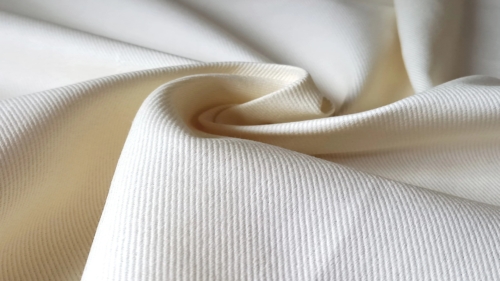As awareness about environmental issues continues to grow, many individuals are seeking ways to make sustainable choices in their daily lives. One area where conscious decisions can make a significant impact is in the realm of fashion and textiles. By choosing eco-friendly fabrics, we can reduce our carbon footprint, conserve resources, and support ethical practices within the textile industry.
In this guide, we will explore various eco-friendly fabrics and offer insights into their production, benefits and recommended uses. Let’s embark on a journey towards a more sustainable and fashionable future!
- Organic Cotton
- Hemp
- Linen
- Recycled Polyester
- Tencel® (Lyocell)
- Organic Wool
- Bamboo
Organic Cotton
Farmers grow organic cotton without the use of synthetic pesticides or fertilizers. It promotes biodiversity, reduces water consumption and eliminates harmful chemicals in textile production. Additionally, organic cotton is soft, breathable and versatile, making it an ideal choice for a wide range of clothing items.
Hemp
The cannabis plant yields hemp, a highly sustainable fiber. Growing hemp requires minimal water and pesticides, making it an environmentally friendly choice. To add, hemp fabric possesses durability, breathability and excellent insulating properties. Moreover, it finds applications in clothing, accessories and even home textiles.
Linen
Derived from the flax plant, linen has been utilized for centuries. It is a renewable resource that necessitates fewer pesticides and water in comparison to conventional cotton. Furthermore, linen is renowned for its strength, breathability and moisture-wicking properties, rendering it an ideal choice for summer clothing and household textiles.
Recycled Polyester
Manufacturers produce recycled polyester by transforming post-consumer plastic bottles and textile waste, diverting them from landfills. Also, this process consumes fewer resources and emits fewer greenhouse gases when compared to virgin polyester production. Moreover, recycled polyester exhibits similar qualities to conventional polyester, such as durability, quick-drying properties and versatility.
Tencel® (Lyocell)
Tencel®, a brand name for lyocell fiber, derives from sustainably sourced wood pulp. It undergoes an environmentally friendly manufacturing process using a closed-loop system that recycles solvents. What’s more, Tencel® fabric offers softness, breathability and biodegradability. Further, it finds widespread usage in clothing, bedding and home textiles.
Organic Wool
Organic wool comes from sheep raised on organic pastures without exposure to synthetic chemicals. Besides, it is produced using ethical shearing practices that prioritize animal welfare. To add, it is warm, insulating and naturally breathable, making it suitable for cold-weather garments and accessories.
Bamboo
Bamboo fabric is made from the pulp of bamboo grass, which grows rapidly without the need for pesticides or fertilizers. Also, it has natural antibacterial properties, breathability and the ability to wick moisture away from the body. However, it is important to choose bamboo fabric made through a closed-loop manufacturing process to avoid potential environmental concerns associated with certain chemical treatments.
By choosing eco-friendly fabrics, we can contribute to a more sustainable and ethical fashion industry. Each fabric discussed in this guide offers unique benefits, whether it’s the water-saving properties of organic cotton or the durability of hemp. Remember to consider factors such as the fabric’s source, manufacturing process and end-of-life disposal when making your sustainable choices. Together, let’s embrace eco-friendly fabrics and pave the way for a greener and more fashionable future.
Don’t miss out on Exploring the Best Color for Sustainable Finishes for additional ideas.
About Us:
Founded in 2017, Satin and Slate is one of the elite interior design studios in Southern California. Located in Long Beach, this dedicated team of designers oversees from kitchen and bathroom renovations to commercial projects. Equipped with their own showroom/studio they can satisfy the needs of any client. Featuring clean lines, bright colors and fresh ideas Satin and Slate’s mission is to bring your vision to life and help transform your space into something extraordinary.












